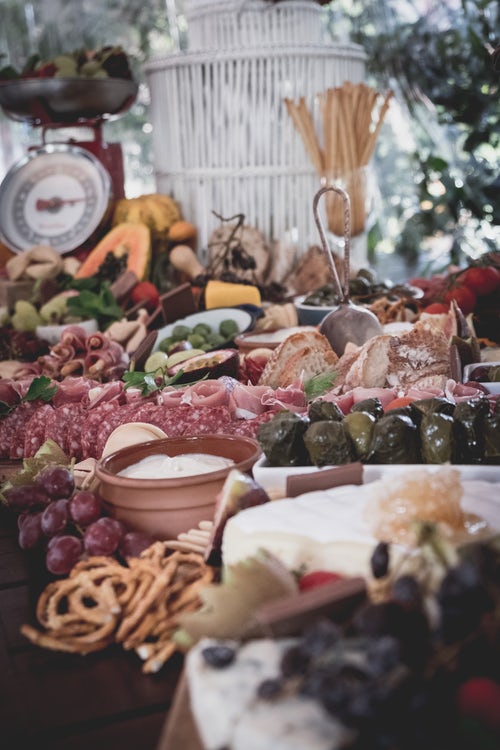I’m a mug junkie. I have mugs overflowing around our house. Mugs in the cupboards. Mugs on a special shelf in our solarium-breakfast room. I even had my husband add another shelf to one of our kitchen cabinets to accommodate all of them. The cabinet right above the coffee maker. The cabinet stuffed with mugs, tea, and coffee-making supplies. It’s gotten to be a family joke.
I don’t remember when I started “collecting” them. I had a few mugs scattered around, special ones I’d picked up at seminars, (with conference logos and company promo material), national park mugs, and mugs from Hawaii with our Anglicized-Hawaiian names on them. But when I gave up collecting vacation-spot T-shirts, I gravitated toward mugs, which are much more difficult to haul home (unbroken) in a suitcase!
Now I have “retired” mugs on display on a special shelf, the ones I don’t want to break or wear down any longer through usage; and the noteworthy cracked ones I can’t bear to part with. And I have several secreted away that no one else is allowed to use but me. The mugs given as extra-special gifts, or the ones that remind me of sweet times Chris and I have spent together at some charming Bed and Breakfast.
But there’s one mug I’ve never used. It’s been prominently displayed on my writing desk for over 25 years. The blue marble-look mug I received after donating to a well-known ministry. The words on it remind me of something I should keep forefront in my mind. Every day. Words especially appropriate for this month when we celebrate the Resurrection of our Lord.
Perhaps Today!
Can you guess what those words reference?
They’re a reminder that our Lord will return one day. They’re a hope that perhaps today will be that glorious day—when He’ll return, subdue the earth, vanquish his foes, and lift up and resurrect the faithful.
Jesus’ Second Coming—
Of course, not everyone believes He will return. And not everyone harbors the hope within his or her heart that He will. Some are terrified it might be true.
I thought about my “Perhaps Today!” mug when reading a chapter from Max Lucado’s book And the Angels Were Silent: The Final Week of Jesus. Reading that book has been my Lenten practice nearly every year the last 23 years.
The particular chapter that brought the mug to mind is titled “Be Ready.” The verse associated with the chapter is Matthew 24:42:
“So always be ready, because you don’t know the day your Lord will come.”
It’s a winsome (and stark) reminder that being ready for His return is a way of life. A critical one.
Jesus’ Last Sermon on Earth—
In his book, Lucado examines what Jesus says and does (and doesn’t say and do) the last week of His earthly life. It’s a lesson—when time and distractions are stripped away—on what’s important. This particular chapter looks at the topic of Jesus’ last sermon.
What would you think a last-sermon topic would be? Like Lucado, we’d probably preach on love, or family, or church attendance, ministry support. Spreading the Gospel. Doing good and being good. Marching for some social justice issue.
But Jesus focuses on something He evidently believes is far more important.
He focuses on being prepared.
Or, as Lucado bluntly puts it:
“He preached on being ready for heaven and staying out of hell.”
Hell. Now there’s a word many recoil at. “Does anyone believe in hell anymore?” you might ask.
Jesus is a firm believer in it. If you haven’t tallied up the numbers, He talked about hell and money more than anything else while He was on earth.
But it’s become a passé or quaint subject. An idea reserved for the undereducated or simple-minded. As Lucado points out:
“We don’t like to talk about hell, do we? In intellectual circles the topic of hell is regarded as primitive and foolish. It’s not logical. ‘A loving God wouldn’t send people to hell.’ So we dismiss it.
But to dismiss it is to dismiss a core teaching of Jesus. The doctrine of hell is not one developed by Paul, Peter, or John. It is taught by Jesus himself.
And to dismiss it is to dismiss much more. It is to dismiss the presence of a loving God and the privilege of a free choice.”
And that’s the point: we all have a free choice. To choose heaven or hell. And God will honor what we choose.
Where will you choose to spend eternity?
God talks a lot about what we’ll gain by going to heaven, how we can get there, and what consequences we face if we choose poorly.
And that leaves me with one more point Lucado made. An ironclad argument against this idea that there is a heaven but no opposite place—hell—in existence.
“To reject the dualistic outcome of history and say there is no hell leaves gaping holes in any banner of a just God. To say there is not hell is to say God condones the rebellious, unrepentant heart. To say there is no hell is to portray God will eyes blind to the hunger and evil in the world. To say there is no hell is to say that God doesn’t care that people are beaten and massacred, that he doesn’t care that women are raped or families wrecked. To say there is no hell is to say God has no justice, no sense of right and wrong, and eventually to say God has no love. For true love hates evil.
Hell is the ultimate expression of a just Creator.”
I’ll add one more thought: If there is no hell, why would Jesus have to endure humiliation, abandonment, torture, and a cruel Roman cross to provide a way for us to enter and enjoy heaven? Was that all just one big wasted event?
Surprisingly, staying out of hell and making the choice for Him and an eternal life in heaven, is the same topic he preached on during His first sermon.
He constantly warned people to be prepared. He focused on the subject the last week of His life, three short days before His death.
And I believe it’s a subject we need to return to today. Not by standing on street corners with signs, pointing angry fingers at people and shouting at them through angry, twisted lips and with blazing eyes that they’re headed for doom.
I think it’s something we need to continue talking about in a loving, firm way. With hearts of concern for the rejecters or uncommitted. As I’ve heard pastors say, “If you saw someone in a burning building, wouldn’t you try to do everything you could to save them? Or would you just walk by and say, ‘Oh well?'”
I know many think we believers-in-hell are feeble-minded, duped, or downright nuts. But that’s okay with me. I’d rather it weren’t true; I’d like to believe that God just says, “Okay. I’m going to let everyone into heaven, even if they’ve rejected me. Or just annihilate them so they’ll never know what they’re missing. That’s a belief to which many faithful are now subscribing. It just sounds nicer.
But I can’t have it my way. I don’t make the rules. God does. And I don’t think He would have spent so much time warning against it if it were just some big cosmic joke. A “just kidding” discussion.
What to do while we’re waiting—
Does looking forward to His second coming mean I do nothing but twiddle my thumbs until it happens? Many people that laugh at us, thinking that’s what we’re do.
But when I think “Perhaps Today!” my looking forward to it in anticipation should drive me closer to preparation, being found busy and active, as Jesus instructs us to be. Doing His work down here, like a faithful ambassador, until He returns.
So, along with the “Perhaps Today” thought, I try to start every day with a Jewish adage I learned some years ago: “Rise up like a lion in the service of the Lord.”
You never know when or at what hour you might be called. You might as well be busy during the waiting and anticipation process.
And then it will be too late.
May God grant you a happy, expectant “Perhaps Today!” heart as you prepare for the commemoration of His final week, crucifixion and glorious Resurrection, and live every day of your life until He returns!
Until next time,
Shalom!
Andrea
“Certainly there was an Eden….We all long for it, and we are constantly glimpsing it.” —J.R.R. Tolkien




